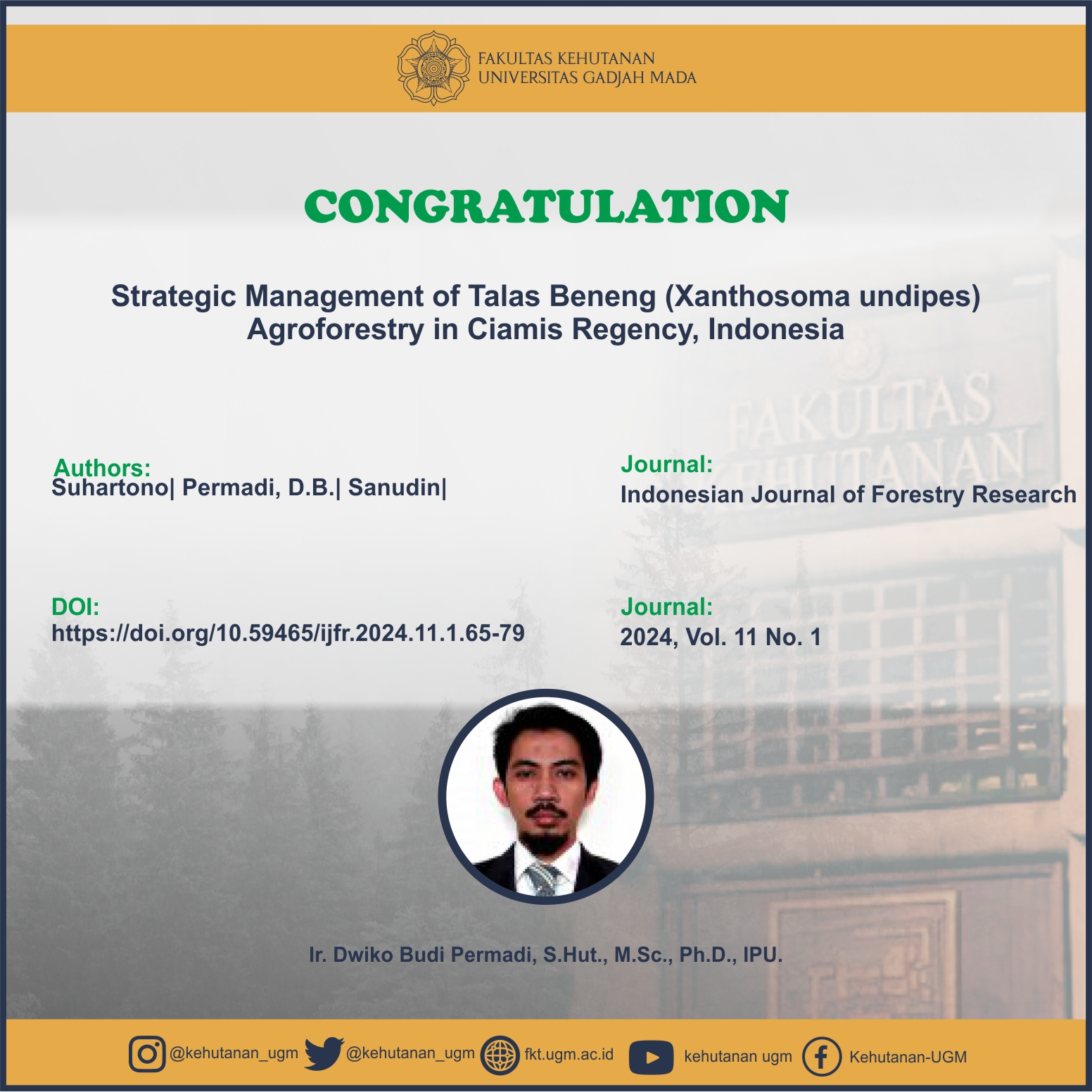
Abstract
STRATEGIC MANAGEMENT OF TALAS BENENG (Xanthosoma undipes) AGROFORESTRY IN CIAMIS REGENCY, INDONESIA. Recently, the Indonesian government has sought to secure food production from forestlands by implementing agroforestry in rural areas. Talas beneng or tall elephant ear plant (Xanthosoma undipes) is a potential species for agroforestry that produces medicinal tubers and leaves. It has high productivity and export opportunities, but its management strategy under community forestland needs to be more widely studied. In Ciamis Regency, talas beneng has been cultivated for the last two years, but the progress has not been significant. This study aimed to formulate strategic management for improving its business model by identifying internal and external factors. Two groups of farmers in Ciamis Regency were chosen as the case study. Observation and in-depth interviews with farming group leaders as key informants were employed to gather the existing model business. Internal and external factors were analyzed using a business model canvas (BMC) framework, SWOT analysis and quantitative strategic planning matrix (QSPM). Results show that the market channels between the two groups of talas beneng producers are slightly different. SWOT analysis shows that both groups have positions in which product development and market penetration are required as strategies to improve future management. Specific strategies that need to be prioritized include 1) improving farming intensification, 2) improving talas beneng product competitiveness, and 3) expanding the business partnership to access market information better.
SDGs:
1. SDGs 2:Zero Hunger
2. SDGs 4:Quality Education
3. SDGs 8:Decent Work and Economic Growth
4. SDGs 12:Responsible Consumption and Production
5. SDGs 13:Climate Action
6. SDGs 15:Life on Land
Link Dokumen:
Download
